History and Evolution of Managerial Accounting: A Report
VerifiedAdded on 2022/11/25
|5
|578
|437
Report
AI Summary
This report provides a comprehensive overview of the history and evolution of managerial accounting. It begins by discussing the early stages of managerial accounting, focusing on cost calculation and efficiency in production processes during the 19th and early 20th centuries. The report then traces the shift to matching costs with specific items for better financial control. It further explores the evolution of managerial accounting in the mid-20th century, including the introduction of absorption costing and its role in financial planning. The report also details the emergence of new techniques such as ABC costing, Target Costing, and Just-In-Time purchases, which became popular during the 1980s. Finally, the report highlights the focus on value creation, the use of the Balanced Scorecard, and Economic Value Added, which are key concepts in modern managerial accounting. The report concludes by emphasizing the increasing flexibility and usefulness of managerial accounting in providing organizations with essential information and suggesting improvement measures.
1 out of 5
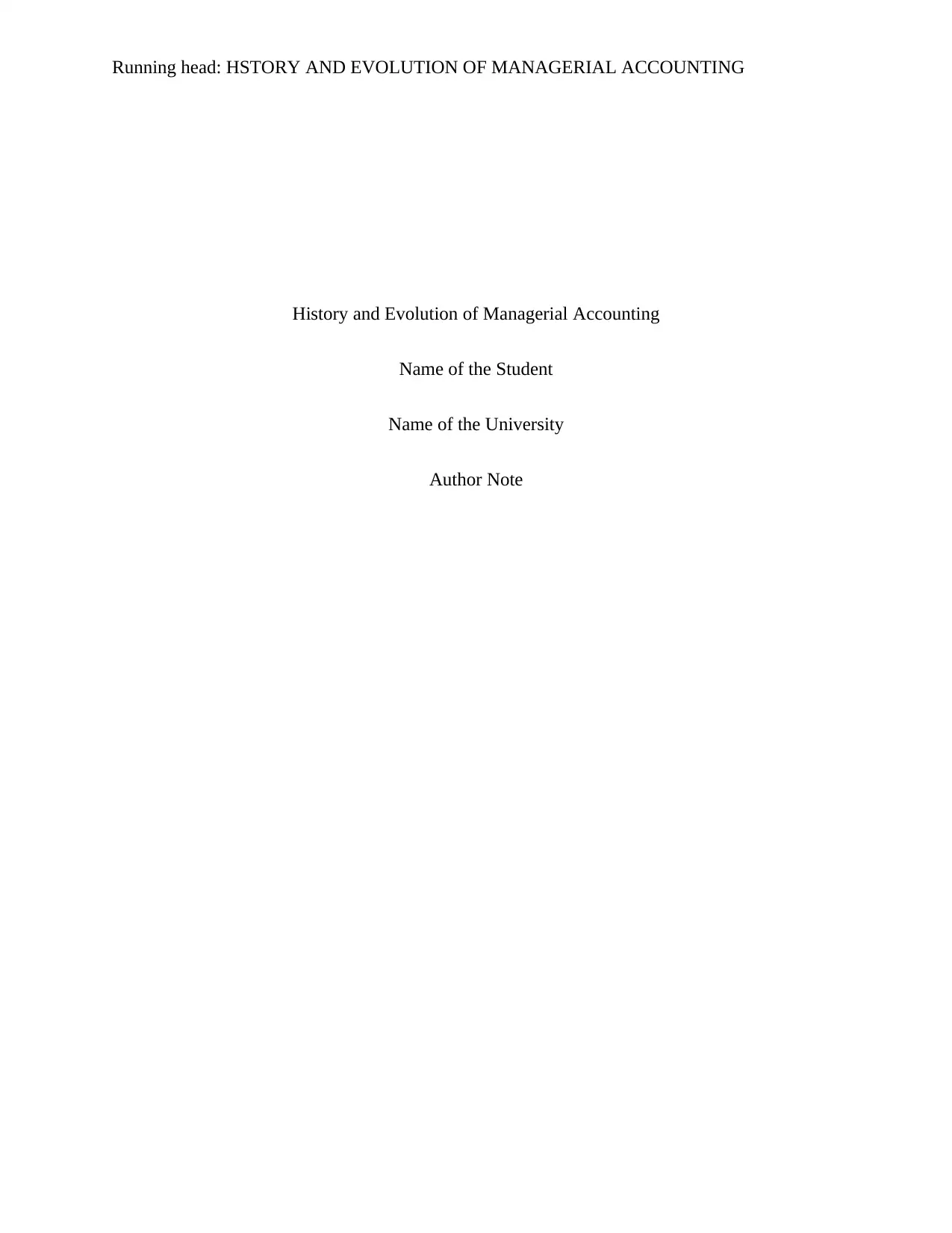
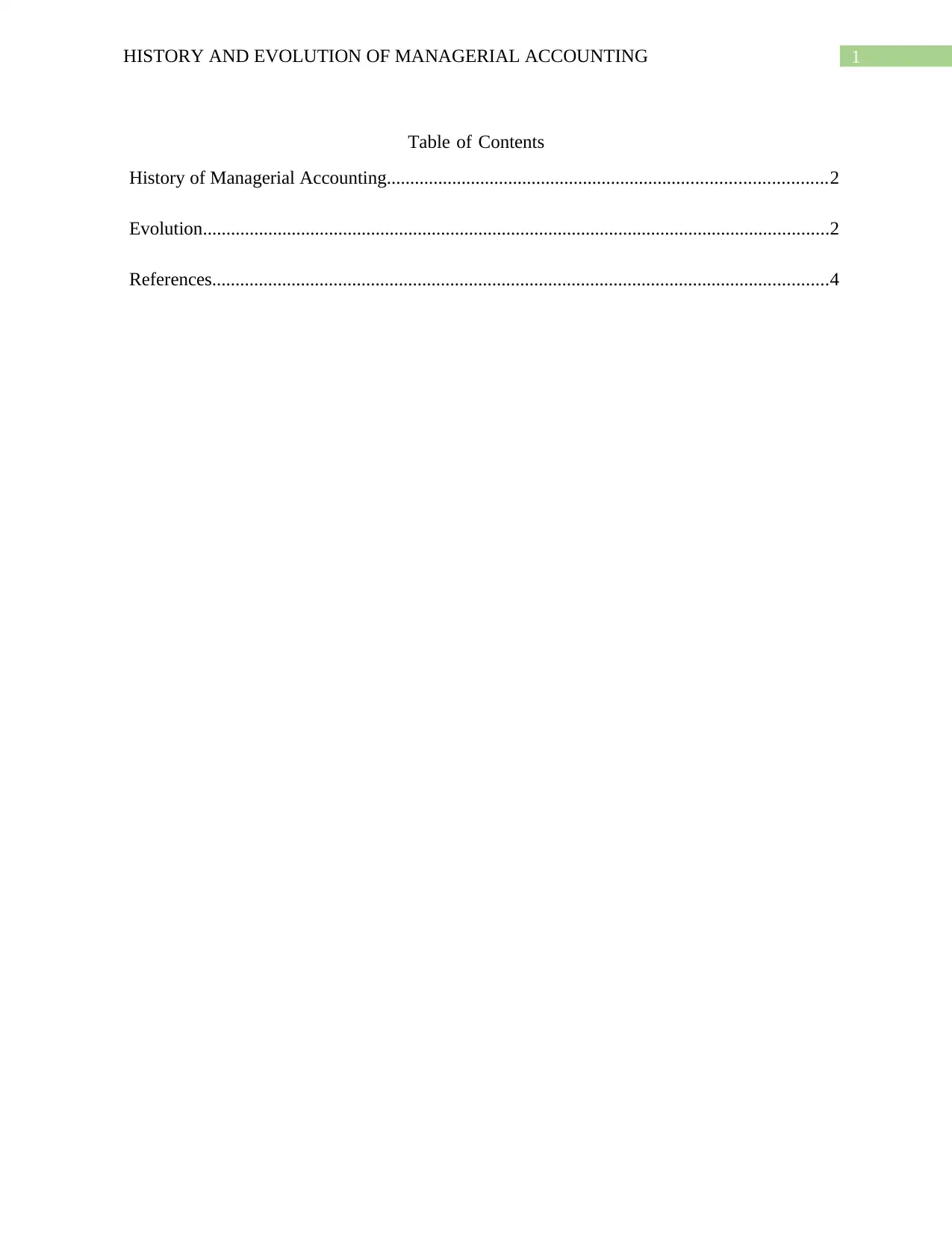
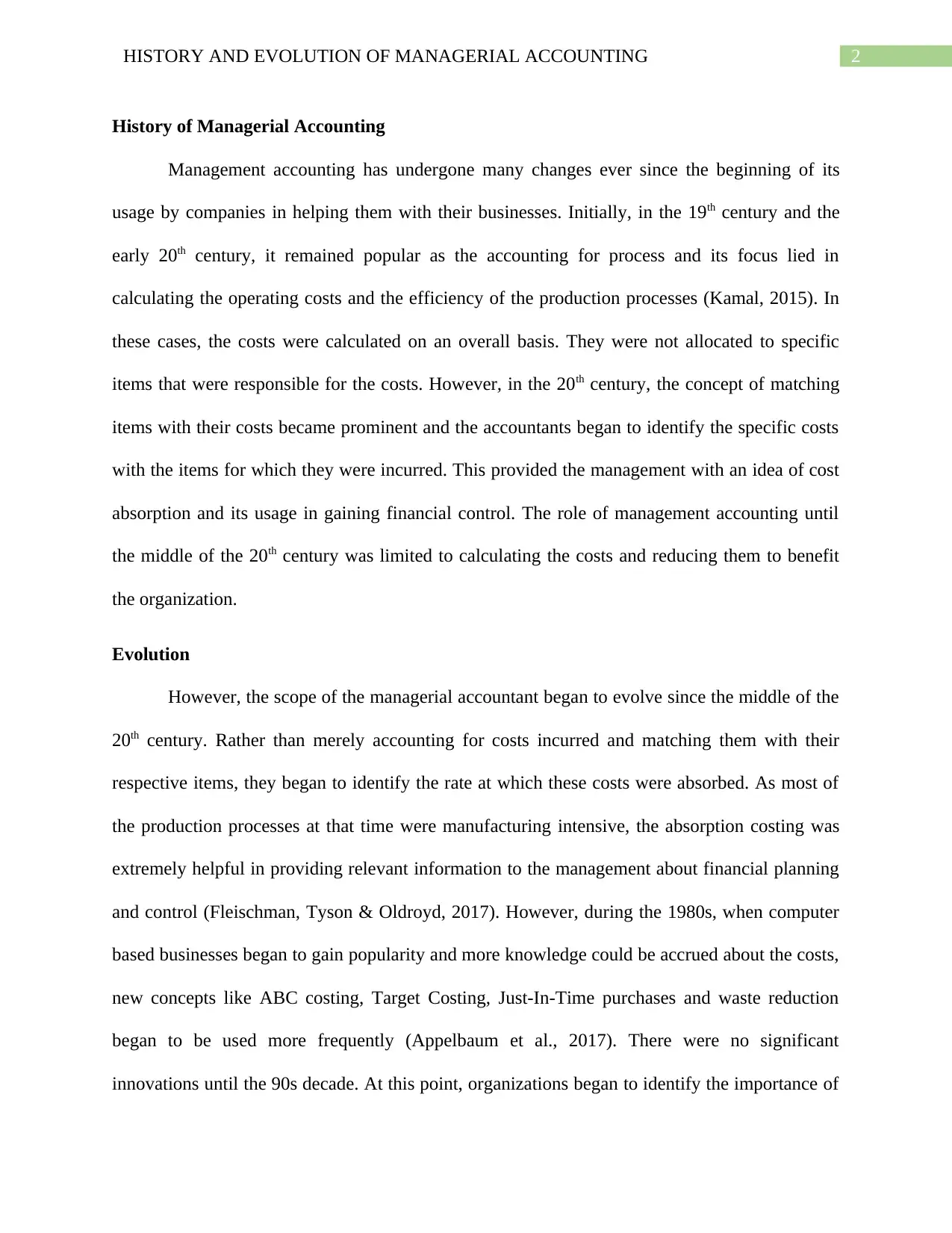

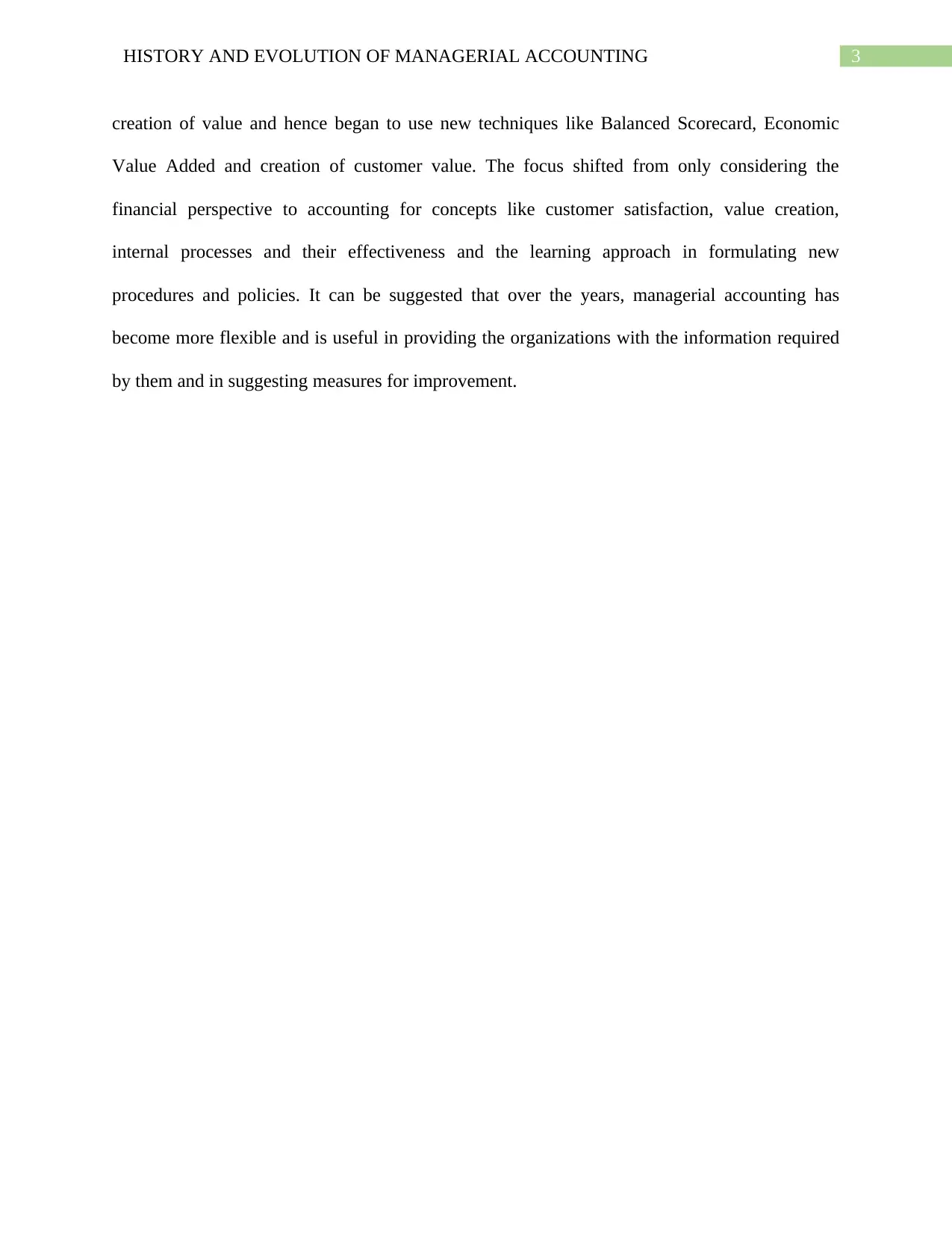
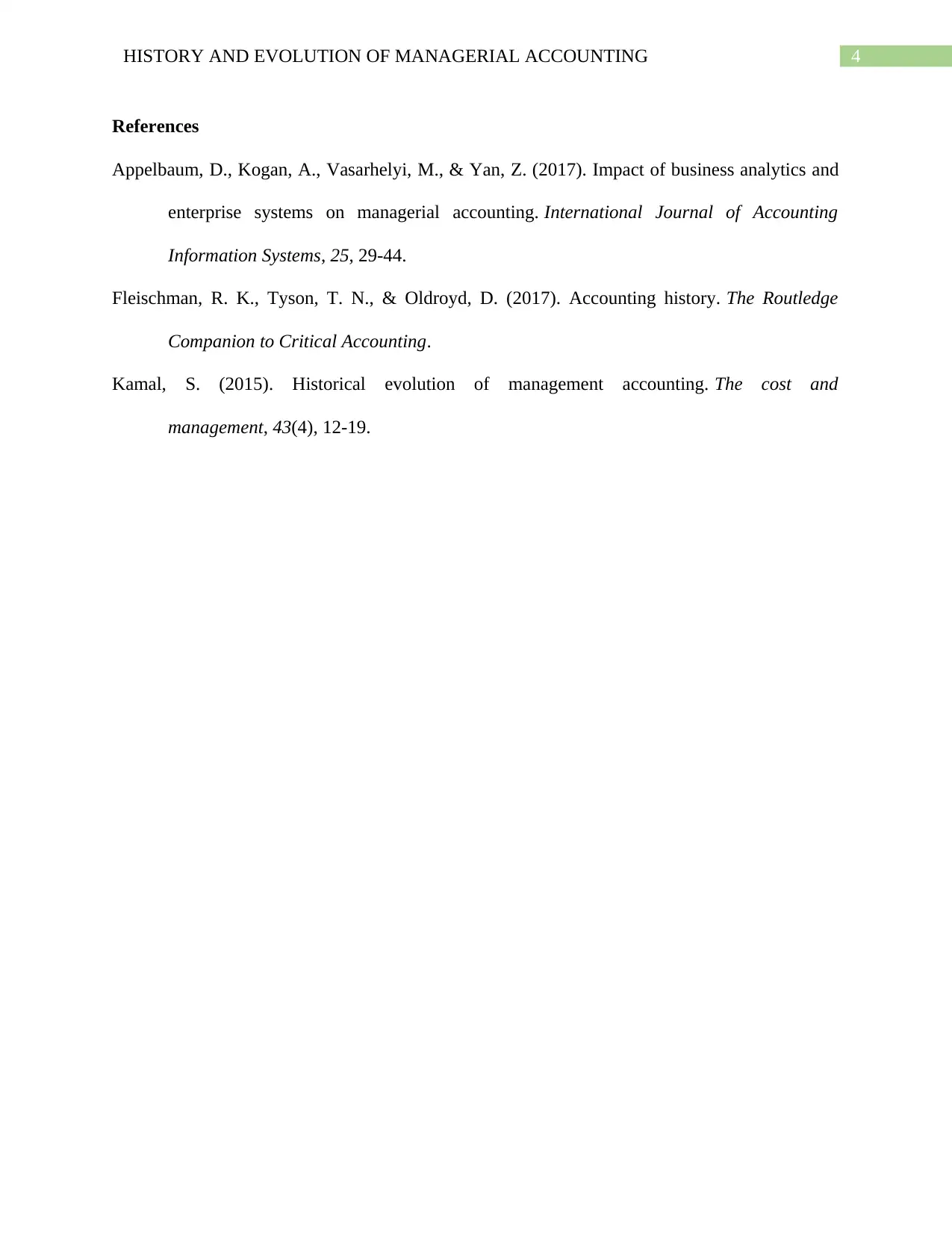
![[object Object]](/_next/static/media/star-bottom.7253800d.svg)